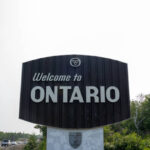
Canada is starting 3 new permanent resident programs in 2025. These 3 programs are:
- ✅The Francophone Community Immigration Pilot (FCIP)
- ✅The Rural Community Immigration Pilot (RCIP)
- ✅The Home Care Worker Immigration Pilots (HCWIP)
Unlike most other permanent residence pathways in Canada, these 3 programs are targeted toward specific economic needs in the country, and applicants who have the necessary skills and expertise will benefit from the programs.
How can you be a part of these programs? Let’s take a look at the key requirements.
The Francophone Community Immigration Pilot (FCIP)
The Francophone Community Immigration Pilot offers permanent residence (PR) to skilled workers who want to work and settle in rural and more remote Francophone-minority communities.
The FCIP opens on January 31, 2025.
To apply for permanent residence through the Francophone Community Immigration Pilot (FCIP), you must:
- ✅have a job offer from a designated employer in the community
- ✅have at least 1 year (1,560 hours) of related work experience in the past 3 years
- ✅prove your language abilities by taking an approved French Language test (opens in a new tab)
- ✅have a minimum score of CLB 5 in all 4 abilities of the French Language test (TEF or TCF)
- ✅have a Canadian educational credential or the foreign equivalent
- ✅prove you have enough money to support your transition and your family’s transition into the community
The following communities will participate in the Francophone Community Immigration Pilot (FCIP):
- ✅Acadian Peninsula, NB
- ✅Sudbury, ON
- ✅Timmins, ON
- ✅Superior East Region, ON
- ✅St. Pierre Jolys, MB
- ✅Kelowna, BC
To apply for permanent residence through this pilot, you need a job offer. Each community has designated certain employers to make job offers. Check their website to see the list of designated employers here.
Summary of the Francophone Community Immigration Pilot (FCIP)
To be eligible for the FCIP program, you must have a job offer from a designated employer in one of the 6 eligible francophone communities, have at least one year of previous work experience, write a language test in French, and have at least CLB 5, meet the education requirements (by having a Canadian degree/diploma or evaluating your foreign degree/diploma), and have the required proof of funds.
For more information about the FCIP program, read the detailed application guidelines here.
The Rural Community Immigration Pilot (RCIP)
The Rural Community Immigration Pilot offers permanent residence (PR) to skilled workers who want to work and settle in rural and more remote communities.
The RCIP opens on January 31, 2025.
For the RCIP, Canada has selected 14 communities who showed they can support and benefit from skilled migrants. They will approve certain employers to hire for jobs that they can’t fill with local workers.
To apply for permanent residence through the Rural Community Immigration Pilot (RCIP), you must:
- ✅have a job offer from a designated employer in the community
- ✅have at least 1 year (1,560 hours) of related work experience in the past 3 years
- ✅prove your language abilities by taking an approved test
- ✅have the required minimum scores of CLB in your language test. The minimum score you need depends on the NOC TEER category of your job offer: TEER 0 or 1 jobs: CLB 6; TEER 2 or 3 jobs: CLB 5; TEER 4 or 5 jobs: CLB 4.
- ✅have a Canadian educational credential or the foreign equivalent
- ✅prove you have enough money to support your transition and your family’s transition into the community
The following communities will participate in the Rural Community Immigration Pilot (RCIP):
- ✅Pictou County, NS
- ✅North Bay, ON
- ✅Sudbury, ON
- ✅Timmins, ON
- ✅Sault Ste. Marie, ON
- ✅Thunder Bay, ON
- ✅Steinbach, MB
- ✅Altona/Rhineland, MB
- ✅Brandon, MB
- ✅Moose Jaw, SK
- ✅Claresholm, AB
- ✅West Kootenay, BC
- ✅North Okanagan Shuswap, BC
- ✅Peace Liard, BC
To apply for permanent residence through this pilot, you need a job offer. Each community has designated certain employers to make job offers. Check their website to see the list of designated employers here.
Summary of the Rural Community Immigration Pilot (RCIP)
To be eligible for the RCIP program, you must have a job offer from a designated employer in one of the 14 eligible rural communities, have at least one year of previous work experience, write a language test in French or English and have between CLB 4-6 (depending on the TEER of your job offer), meet the education requirements (by having a Canadian degree/diploma or evaluating your foreign degree/diploma), and have the required proof of funds.
For more information about the RCIP program, read the detailed application guidelines here
The Home Care Worker Immigration Pilots (HCWIP)
The Home Care Worker Immigration Pilots (HCWIP) program will provide home care workers with permanent residence (PR) on arrival in Canada.
They will also be allowed to work for organizations that provide temporary or parttime care for people who are semi-independent or recovering from an injury or illness. This new pathway means that caregivers can more easily find proper work with reliable employers and have clear, straightforward access to permanent resident status as soon as they arrive in Canada.
The HCWIP opens on March 31, 2025.
To apply for permanent residence through the Home Care Worker Immigration Pilots (HCWIP), you must:
- ✅attain a minimum of level 4 based on the Canadian Language Benchmarks (CLB)
- ✅hold the equivalent of a Canadian high school diploma
- ✅have recent and relevant work experience
- ✅receive an offer for a full-time home care job
The HCWIP program is for all communities in Canada, and targets those who have work experience in the care worker occupation.
Summary of the Home Care Worker Immigration Pilots (HCWIP)
To be eligible for the HCWIP program, you must have a job offer as a homecare worker in any part of Canada, have recent work experience as a homecare worker, write a language test in French or English and have at least a CLB 4, and meet the education requirements (by having the equivalent of a Canadian high school diploma at the least).
For more information about the HCWIP program, IRCC will provide detailed application guidelines here.
I wish you the best in Canada!
If you have questions on Career & Personal Development, Personal Finance, or Building a Personal Brand and want to reach out to us, check what we have here.
DISCLAIMER: The posts and information on this website are not legal advice. We are not Canadian Immigration Consultants and do NOT provide Canadian Immigration Services. For any authorized Canadian Immigration information, services, or support, please check the Government of Canada website at www.canada.ca/immigration
© Olu of Canada




